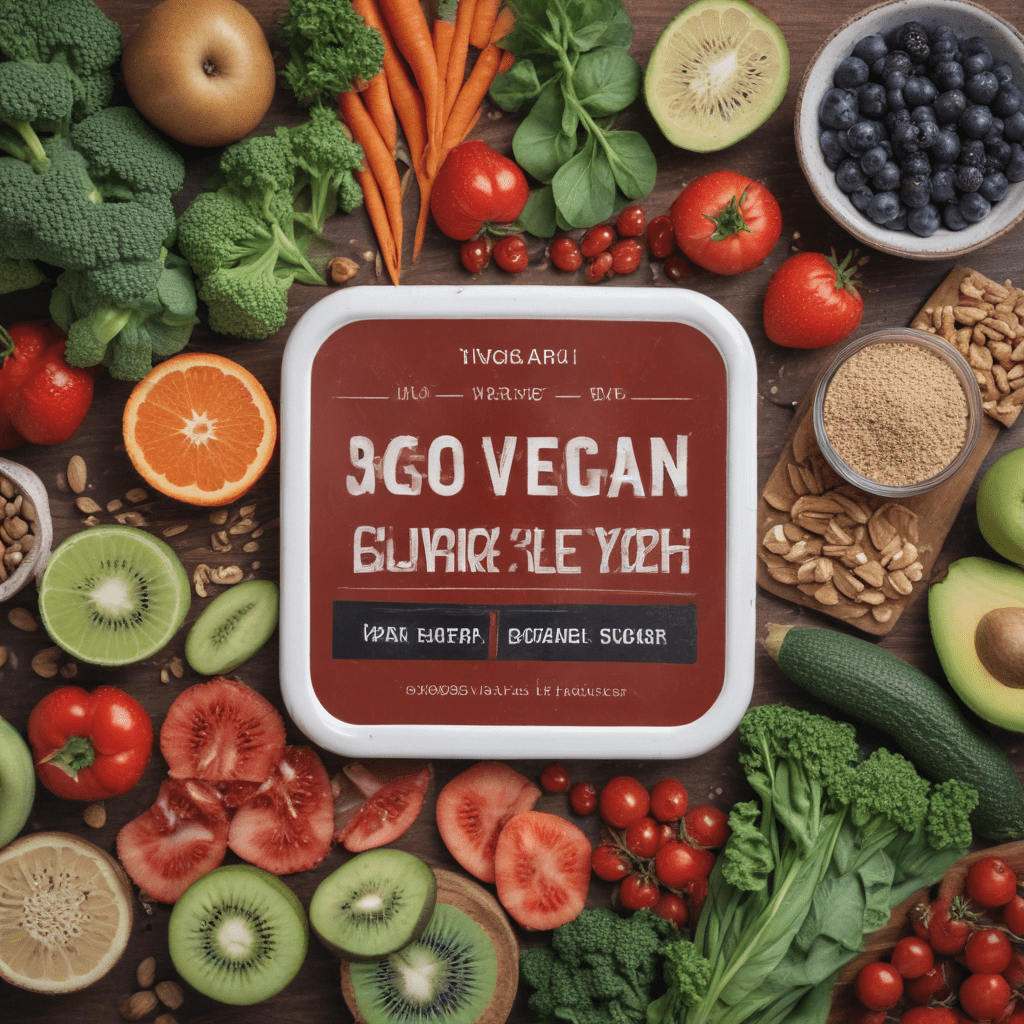
Introduction to Veganism and Blood Sugar Control
The vegan diet, characterized by the exclusion of all animal products, has gained attention for its potential health benefits, including improved blood sugar regulation. Blood sugar, also known as glucose, is a vital energy source for the body. Maintaining balanced blood sugar levels is crucial for optimal health and can reduce the risk of chronic diseases such as type 2 diabetes.
Physiological Mechanisms of Blood Sugar Regulation: The Role of Insulin
Insulin, a hormone produced by the pancreas, plays a key role in blood sugar regulation. When blood sugar levels rise, such as after a meal, insulin helps cells take up glucose from the bloodstream and use it for energy or storage. This process lowers blood sugar levels. Conversely, when blood sugar levels drop, the pancreas releases glucagon, which prompts the liver to release stored glucose into the bloodstream.
Vegan Diet: High in Fiber and Low in Refined Carbohydrates
The vegan diet is naturally high in dietary fiber. Fiber slows down the absorption of carbohydrates, preventing spikes in blood sugar levels. Whole grains, legumes, fruits, and vegetables are excellent sources of fiber. Additionally, the vegan diet typically excludes refined carbohydrates, such as white bread, pasta, and sugary drinks, contributing to a more gradual and sustained rise in blood sugar.
Whole Grains, Legumes, and Vegetables: Nutrient-Rich Foods for Stable Blood Sugar
Whole grains provide complex carbohydrates and are a source of fiber, vitamins, and minerals. Legumes, such as beans, lentils, and chickpeas, are rich in protein and fiber. They help stabilize blood sugar levels and promote satiety. Vegetables, such as leafy greens, broccoli, and carrots, are low in calories and carbohydrates and contain essential vitamins, minerals, and antioxidants.
Fruits and Plant-Based Protein: Moderation for Blood Sugar Balance
Fruits are a source of natural sugars and should be consumed in moderation to prevent rapid increases in blood sugar levels. Plant-based proteins, such as tofu, tempeh, and lentils, are important for satiety but can have a moderate impact on blood sugar levels. By balancing the intake of fruits and plant-based proteins, vegans can maintain stable blood sugar while meeting their nutritional needs.
6. Glycemic Index and Glycemic Load: Considerations for Vegan Meal Planning
The glycemic index (GI) and glycemic load (GL) are measures of how quickly a food raises blood sugar levels. Low-GI foods release glucose more slowly, while high-GI foods cause a rapid rise in blood sugar. Vegan meals can be designed with a low to moderate GI and GL by including a variety of whole grains, legumes, vegetables, and fruits.
7. Meal Frequency and Timing: Optimizing Blood Sugar Control
Eating frequent, small meals throughout the day can help prevent blood sugar spikes and maintain stable levels. This approach keeps insulin levels steady and reduces the risk of post-meal glucose intolerance. Timing meals around exercise or physical activity can also optimize blood sugar control.
8. Exercise and Stress Management: Complementary Strategies for Blood Sugar Regulation
Regular exercise increases insulin sensitivity and improves blood sugar utilization. Aim for at least 30 minutes of moderate-intensity exercise most days of the week. Stress can elevate blood sugar levels. Managing stress through techniques like yoga, meditation, or spending time in nature can support blood sugar control.
9. Monitoring Blood Sugar Levels: Self-Assessment and Medical Guidance
Self-monitoring of blood sugar levels can provide valuable insight into how your diet and lifestyle choices impact blood sugar regulation. Consult with your doctor to determine the appropriate frequency and timing of blood sugar monitoring. The results can help you make informed adjustments to your diet and exercise plan.
10. Conclusion: The Vegan Diet as a Powerful Tool for Maintaining Healthy Blood Sugar Levels
The vegan diet, when planned thoughtfully, can be a powerful tool for maintaining healthy blood sugar levels. By incorporating high-fiber, low-GI foods, balancing meal frequency and timing, engaging in regular exercise, managing stress, and monitoring blood sugar levels, vegans can effectively promote blood sugar stability and reduce the risk of chronic health conditions.
FAQs
Can vegans experience low blood sugar (hypoglycemia)?
Yes, vegans can experience hypoglycemia if they consume large amounts of simple carbohydrates or follow a very low-calorie diet. It is important to eat a balanced vegan diet that includes whole grains, legumes, and fruits to prevent hypoglycemia.
Should vegans take supplements for blood sugar control?
Most vegans do not need to take supplements for blood sugar control. However, some vegans may consider taking chromium or cinnamon supplements, which have been shown to improve insulin sensitivity and reduce blood sugar levels. Consult with your doctor before taking any supplements.
How can I make sure my vegan diet is balanced for blood sugar control?
To ensure a balanced vegan diet for blood sugar control, focus on consuming whole grains, legumes, fruits, and vegetables. Include a variety of these foods at each meal, and limit processed foods, sugary drinks, and refined carbohydrates. Regular exercise and stress management also contribute to blood sugar stability.

